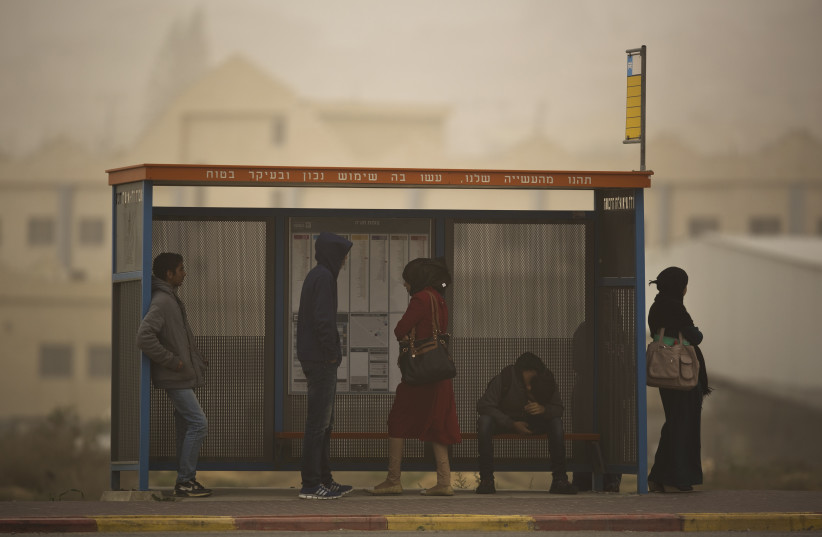Sheikhs and community leaders from Israel's Bedouin community have condemned the October 7 Hamas attacks on Israel and called for trust in the IDF in a press conference last week. Sheikh Kaid Alaesam of Tel Sheva vowed "There will be no Guardian of the Walls 2," referring to the 2021 military operation in Gaza.
"The Bedouins are busy with the war. We have had missiles hit our homes, we have paid with our lives, with the lives of our children." Alaesam said.
At least 21 Bedouins were killed by Hamas terrorists in the October 7 massacre, with some kidnapped and still held hostage.
He also said that the Bedouin population of Israel has made a serious effort to help with war efforts.
Alaesam's statement emphasized the surprise attack and compared its victims to the prey of animals. He also emphasized that those kidnapped and brought into Gaza need to be returned safely. This includes both children and the elderly.

"I trust the security forces. The Bedouin population paid a very heavy price," he said. "I saw the horrors; massive chaos in the country. I am glad that the situation is now under control. I trust the IDF to know how to separate the terrorists from the civilian population."
The Bedouin makeup in Israel
Bedouin citizens, who are ethnically Arab and religiously Muslim, make up about 4% of Israel's total population. They mostly live in the Negev desert and northern Israel.
Bedouin Head of Regional Council Al-Batuf Ahed Rhall said last month that there are at least 7 other Bedouin civilians thought to be missing but, as some bodies are still being identified, the fate of some remains unclear.
Another community leader, Sheikh Gideon Abu Savit, also commented. "After the shocking incident that happened on October 7, we had to raise our voices to the citizens of Israel and the whole world. We condemn the event; there is no word to describe the horrors."
Abu Savit added that in these times, the Jewish and Bedouin communities are united. Operation Guardian of the Walls in May 2021 was a result of the "weeds [situation] that have deteriorated as a result of the incitement of the leaders of the Islamic movement," he said.
The family member of Osama Abu Essa, murdered by Hamas on October 7, reflected on the suffering of the Bedouin community, an Arab minority group known historically as nomadic and living in Israel's Negev region, since the start of the war.
"The Bedouin society paid a heavy price. A member of my family was murdered after being abused by the terrorists. The Bedouin proved that even in a war situation, they contributed a lot, many saved lives while risking their lives. We hope that after we get through the war, the decision-makers will treat us as loyal people whose destiny is here in the State of Israel," Osama's relative Moslah Abu Essa said.
Yosef Hamis Ziadna, his sons Hamza and Belal, and his daughter Aisha were working on the Holit farm on Israel's border with Gaza when they were all kidnapped by Hamas terrorists on October 7 and dragged into captivity in the neighboring coastal enclave.
Yosef Hamis's brother, Ali Ziadna, from the Israeli Bedouin city of Rahat, gave insulin to the Red Cross, hoping they would give it to his brother.
"He's diabetic," Ziadna told Reuters in a phone interview after a meeting with President Isaac Herzog in Jerusalem. "Without it, his sugar could drop and he could collapse."
Reuters contributed to this report.
